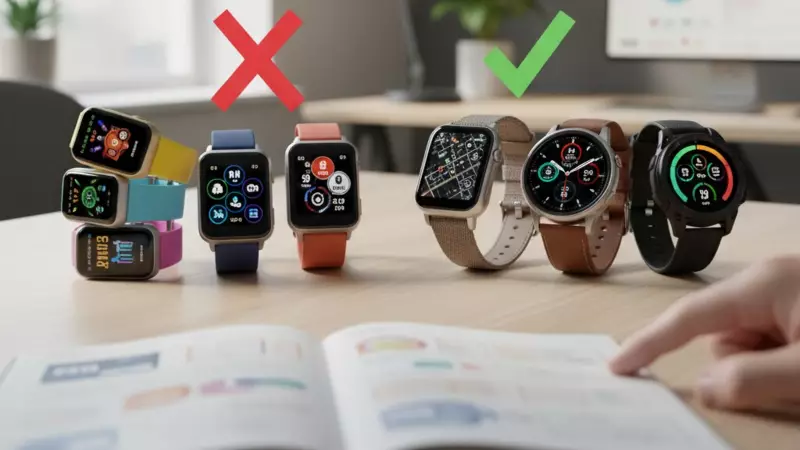
Are you tired of smartwatch disappointment? That sinking feeling when your new gadget dies halfway through the day or tracks your steps with the accuracy of a random number generator? You're not alone. Thousands of Indian consumers face this frustration daily, but the solution isn't buying more watches - it's buying smarter.
The Battery Life Trap: Don't Get Caught Empty-Handed
Many buyers focus on flashy features while ignoring the most crucial aspect: battery performance. Imagine your watch dying during an important workout or, worse, when you need health monitoring the most. The truth is, battery life varies dramatically - from single-day performers to week-long warriors. For Indian users who rely heavily on multiple connectivity features, choosing a watch that can keep up with your lifestyle is non-negotiable.
Health Tracking: Separating Reality from Marketing Hype
Modern smartwatches promise everything from blood oxygen monitoring to ECG capabilities. But how accurate are these measurements really? Many budget watches provide questionable data that could mislead rather than inform your health decisions. Understanding the difference between medical-grade tracking and basic fitness monitoring could be the difference between informed health choices and dangerous assumptions.
The Compatibility Conundrum: Will It Work With Your Phone?
Nothing hurts more than unboxing your shiny new smartwatch only to discover it doesn't sync properly with your smartphone. Whether you're an Android loyalist or part of the Apple ecosystem, compatibility issues can turn your premium purchase into a expensive paperweight. This is especially crucial in India's diverse mobile market where users switch between operating systems frequently.
Essential Features vs. Unnecessary Bloatware
Manufacturers love to cram features into their marketing materials, but how many do you actually need? Our research shows that most users utilize less than 40% of their smartwatch's capabilities. The key is identifying which features align with your lifestyle:
- Fitness enthusiasts: GPS accuracy and heart rate monitoring
- Professionals: Notification management and calendar integration
- Health-conscious users: Sleep tracking and stress monitoring
- Outdoor adventurers: Durability and battery longevity
The Price vs. Value Equation
Expensive doesn't always mean better, and cheap doesn't necessarily mean good value. The sweet spot for most Indian consumers lies in understanding what premium features actually enhance daily use versus those that simply inflate the price tag. Sometimes, a mid-range watch with excellent core functionality outperforms luxury models with confusing interfaces and poor battery life.
Future-Proofing Your Investment
Technology evolves rapidly, but that doesn't mean your watch should become obsolete in six months. Consider software update policies, brand reputation for supporting older models, and the ecosystem of compatible apps. A watch that receives regular updates and maintains app support will serve you far longer than a slightly cheaper alternative with abandoned software.
The right smartwatch should feel like an extension of yourself - seamlessly integrating into your daily routine while providing genuine utility. By focusing on what truly matters rather than marketing hype, you can find a companion that enhances your life rather than complicating it.





